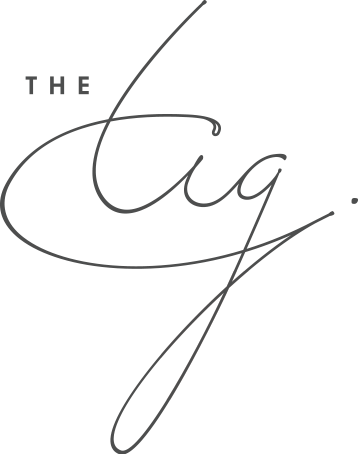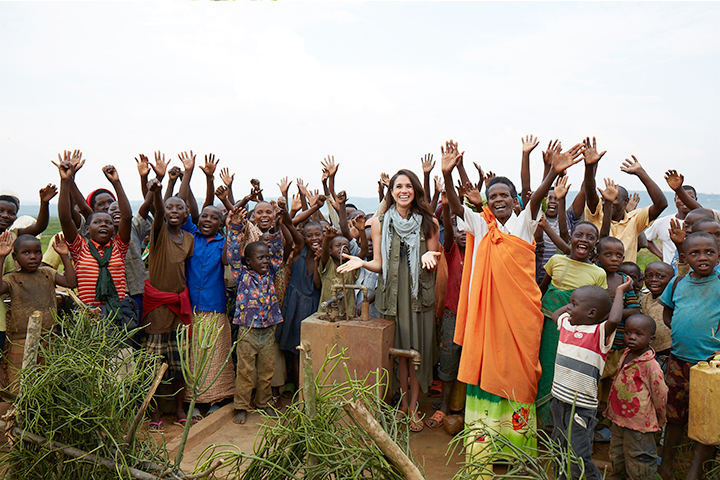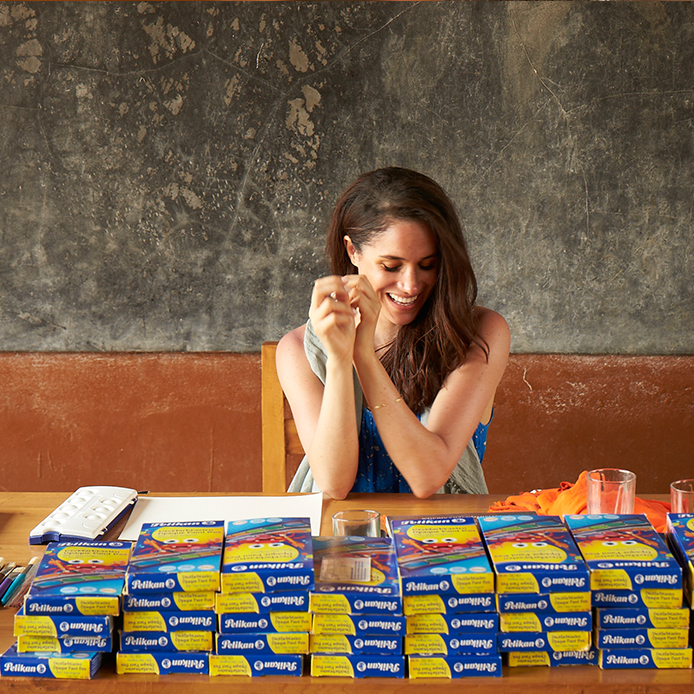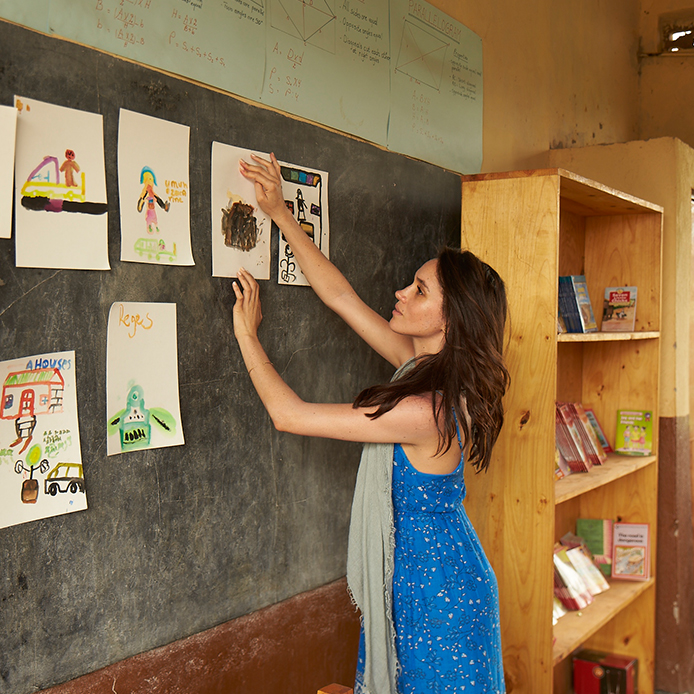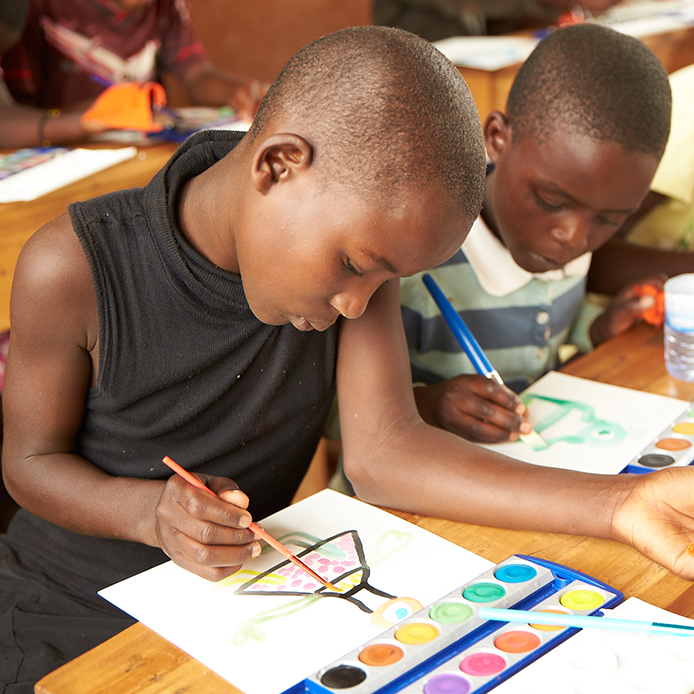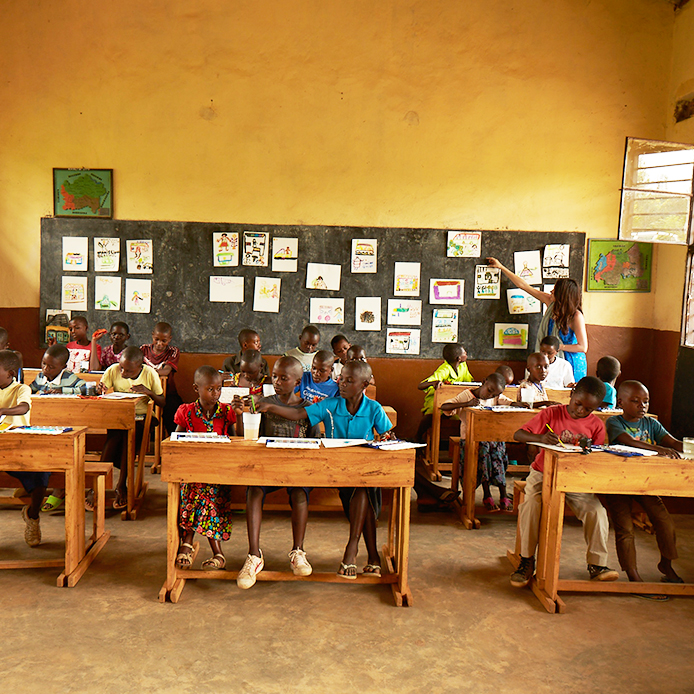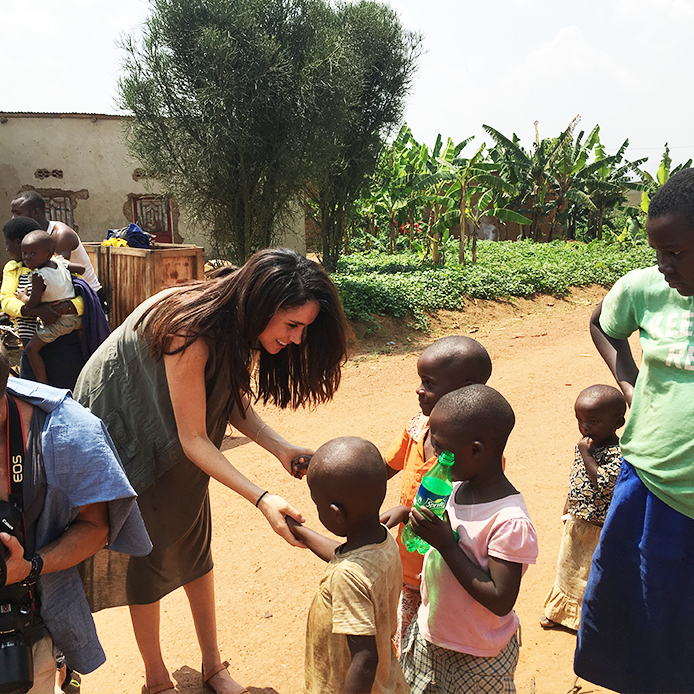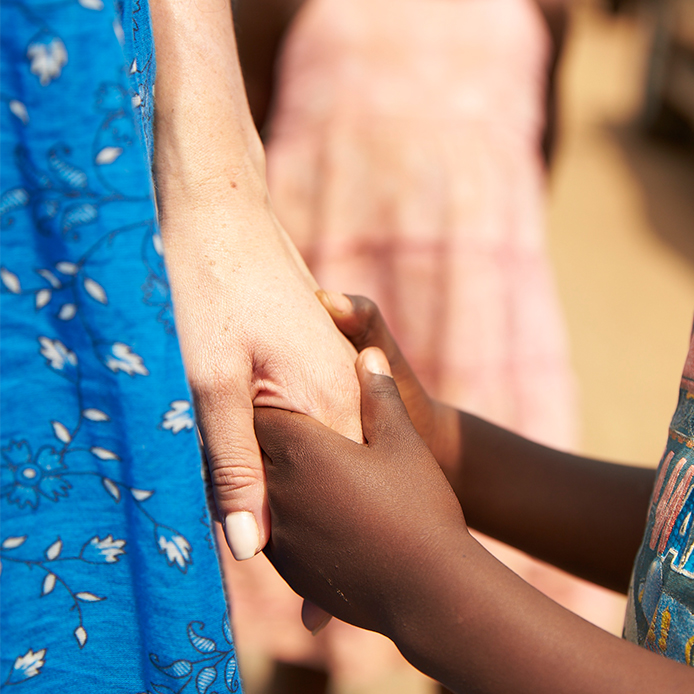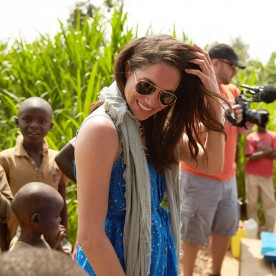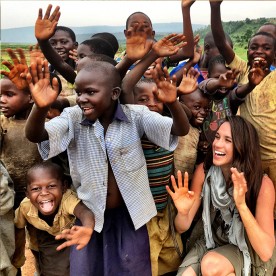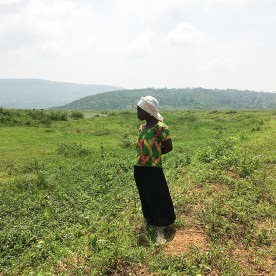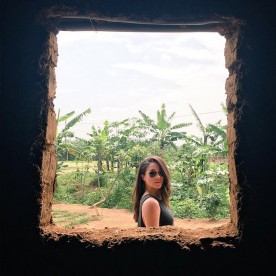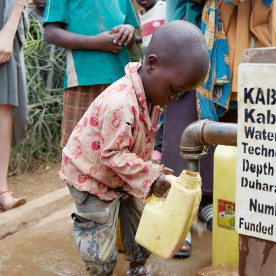I used to take the longest showers, to take a phone call when I was washing dishes, or even let the faucet run while I was brushing my teeth. It was wasting water, yes, but I wasn’t focused on the water at hand; I was focused on the task at hand. On the dishes, or the dentist visit I knew was coming up, or all the minutiae that allow me to let my faucet run so freely. And I share that with you because I know it’s something that happens. Because sometimes we just aren’t thinking. We’re human – it happens because we aren’t always focused on the big picture.
But we should be. We should at least try to be.
During my most recent trip to Rwanda this past January, I was able to see what life is like in villages without access to clean water – not in slivers of time, but all the time.
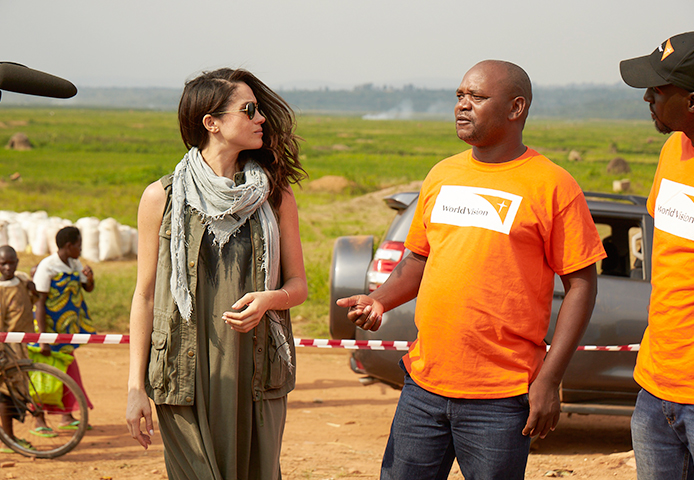
In many developing countries, a young girl has to walk hours each day to fetch water for her family; it makes her vulnerable to violence, it endangers her to trafficking, and at its simplest level, it takes her out of school. I can say this as fact, because I met a 13 year old girl in a village outside of Kigali named Florence, who shared her experience with me. I walked with her to her only viable water source (which was riddled with germs and pesticides) and I met her family at her home. She can’t go to class because she spends close to four hours a day walking to get water from the nearest river. That lack of education hinders her from maximizing her full potential. It takes her out of school, it robs her of an education and it stifles her future. The lack of access to clean water does that. Water! That’s the proverbial and literal trickle down effect.
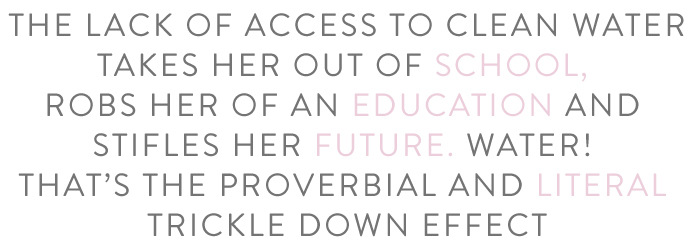
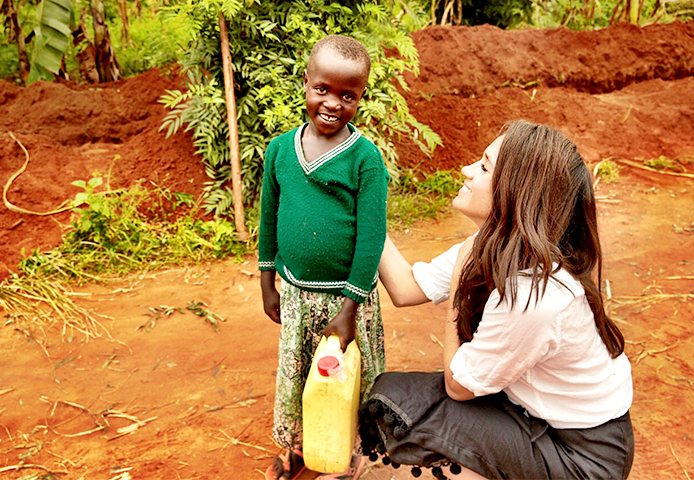
For the past few years, my focus in humanitarian work has been specifically on women’s issues. On uplifting and empowering young girls and women to mobilize from a grassroots level, and to embrace leadership roles within their communities and globally. I have worked hard to advocate on this issue and to empower women to see their potential, but in doing that I have also sought out the root of the problem. From where does it stem and how can it be solved? And the answer is multifaceted.
But when I was able to connect the dots to see that access (or lack thereof) to clean water had a direct correlation to women’s ability to have an education or see their fullest potential, it was as though a light went off. I could then see water so fluidly as not just a natural resource, but as a life source. As a source of inspiration and a gateway to education – an open door to a better future.
It’s not just a glass of water. It’s a glass of hope. It’s the most obvious basic necessity for health and wellness. Just like air, we need water. We simply can’t live without it.

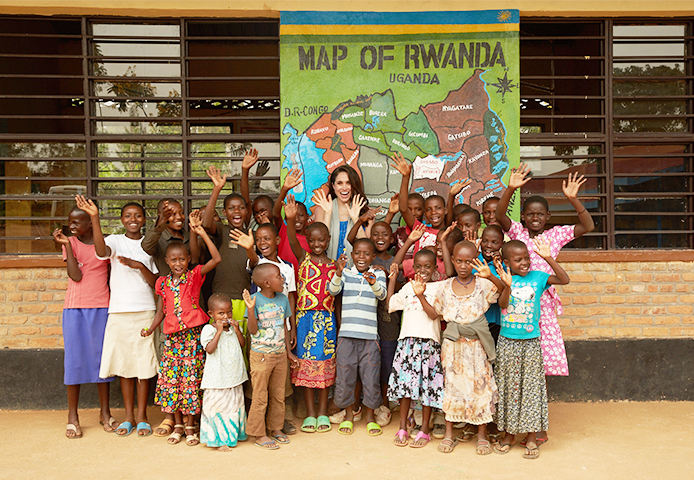
But the value of clean water and the debilitating effects of its absence doesn’t just exist in developing countries. It happens here at home, as with Flint, Michigan where children are plagued with illness and families are moving to other towns in order to find some semblance of normalcy as we know it. Now, there was nothing we could have done to prevent that (not you and I personally at least), but the ripple effect of that is palpable. And devastating. That’s here at home. That’s not supposed to happen anywhere, but it’s even more staggering when it happens here – when we have the means to ensure that it doesn’t.
As global ambassador for World Vision, I know it’s important to raise awareness for causes such as these. As a global citizen, I know it’s imperative to not just look at the crises effecting us at home but to advocate for the voices abroad that need to be heard as well. As a woman, I know it’s vital to ensure that all young girls have access to education – and if access to clean water is one of the pieces of that puzzle, then it’s my job to help bring attention to that very thing.
And, lets be honest, boys and men need clean water too. We all do.
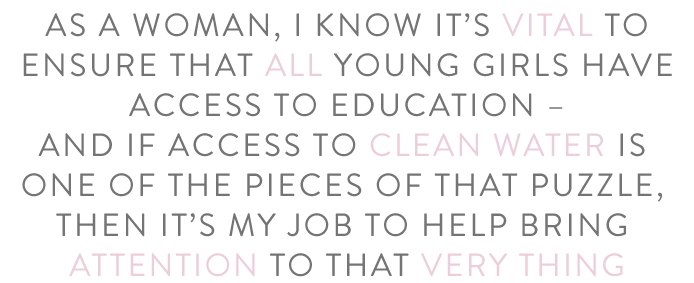
During my visit to the Gashoro region of Rwanda, I embarked on The Watercolor Project – taking cups of water from a well recently built by World Vision, and teaching the children of the community how to paint with watercolors. To paint their dreams of what they want to be when they grow up. Art welled from water, and inspiration welled from a well. The experience was as inspiring and affirming as you can imagine. And it only served to solidify the power of water not just as a life source but as a source for creative imagination.
- Former Meghan Markle in Rwanda World Vision Water Project Credit Rightful Owner/The Tig
So on March 22nd, World Water Day, I invite you to take a stand with me – in whatever way makes sense for you. If it’s making a donation for others to have access to clean water, go for it. If it’s being conscious of the water you use more mindfully, that’s awesome too. On this day, and every day, just know that what you have easy access to is a luxury for so many people. Let’s make a pact to not take that for the granted. For more information go to www.worldvision.org.
